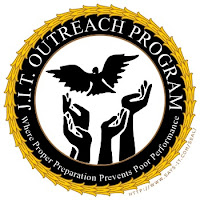The need for meaningful training of adult security staff on techniques for managing youthful offenders was apparent during most of the site visits. Typically, security staff are oriented and trained to deal with adult inmates. Training should prepare staff to recognize and respond to the particular issues faced by a juvenile offender housed in an adult prison, such as the potential for victimization, the emotional effect of incarceration on younger populations, and the way in which substance abuse, education, health, and mental health needs are manifested among younger offenders. This training would be particularly useful for states that have facilities designated for youthful offenders.
Along these lines, it is recommended that adult facilities that house youthful offenders be staffed with people experienced in working in juvenile facilities. These staff are more accustomed to the non-confrontational methods used to control youth that rely less on use of force techniques and more on peaceful conflict resolution.
Staff in adult facilities are trained to respond to disruptive and confrontational adult offenders. The use of chemical agents such as mace or pepper spray, forced cell extractions, physical restraints, and special response teams, although typically effective with adult offenders, may not be appropriate for juvenile populations. Most juvenile correctional systems discourage the use of such techniques as viable methods of controlling youth except in the most extreme situations, and even then only when lesser measures have been exhausted. Physical handling of a youth is permitted only when other measures, such a counseling and crisis intervention techniques, have failed. For such instances, officers are trained on a myriad of other measures such as empty-hand control tactics, which include various holds, leverage, pressure, self-defense measures, and pressure control techniques.
Adult facilities require assistance and training in devising such techniques that do not rely upon a massive use of force yet are effective in deescalating volatile incidents involving youthful offenders.

